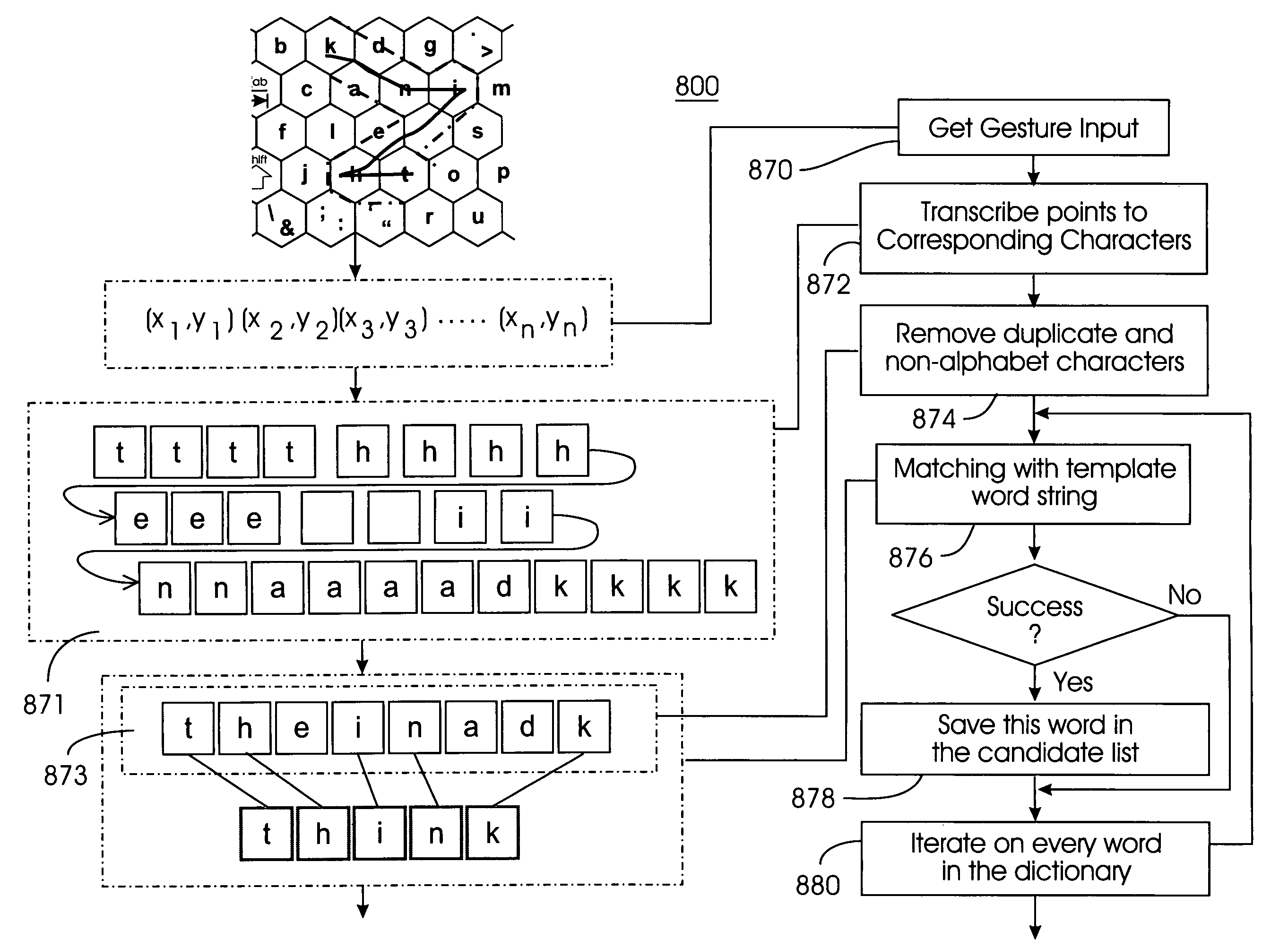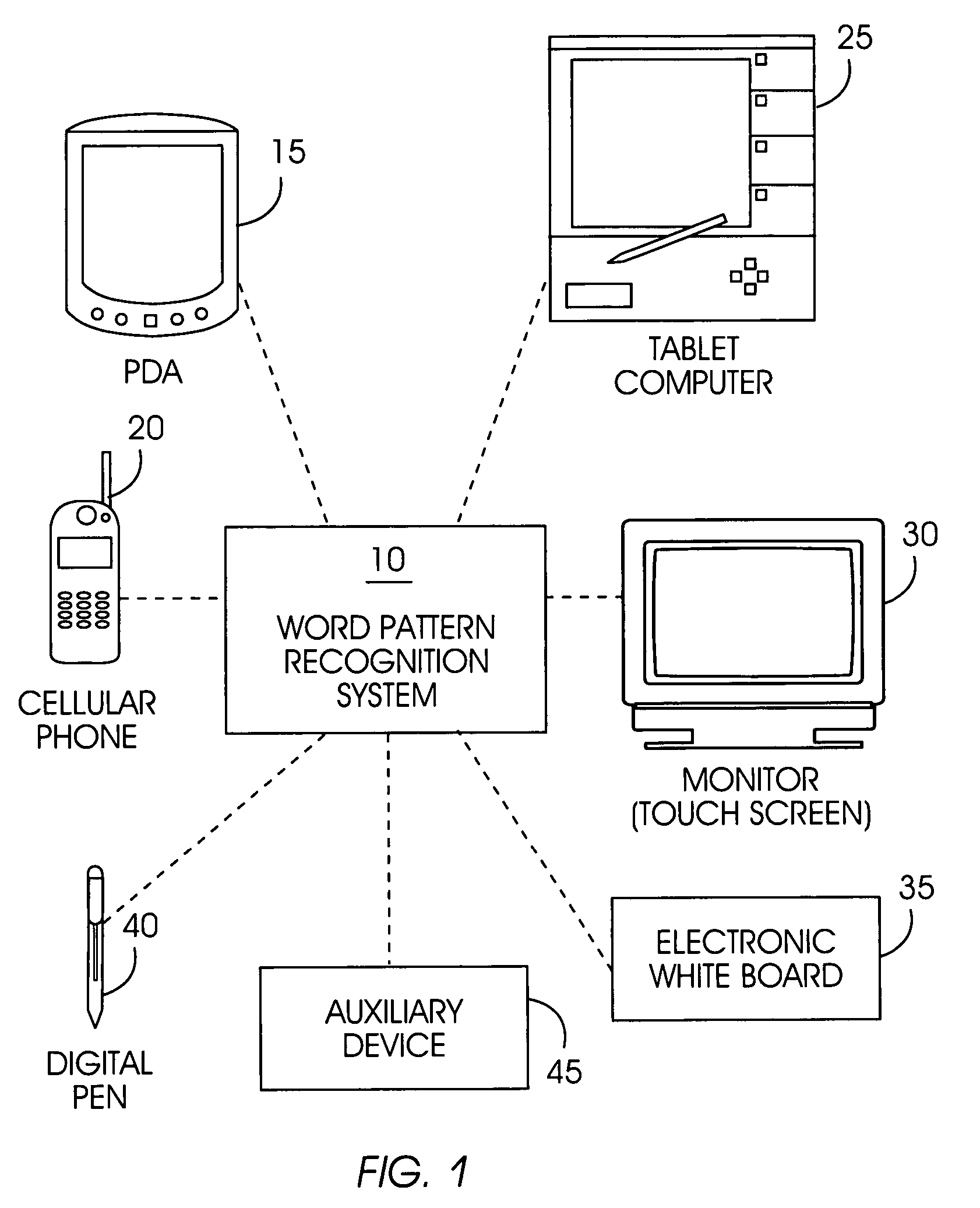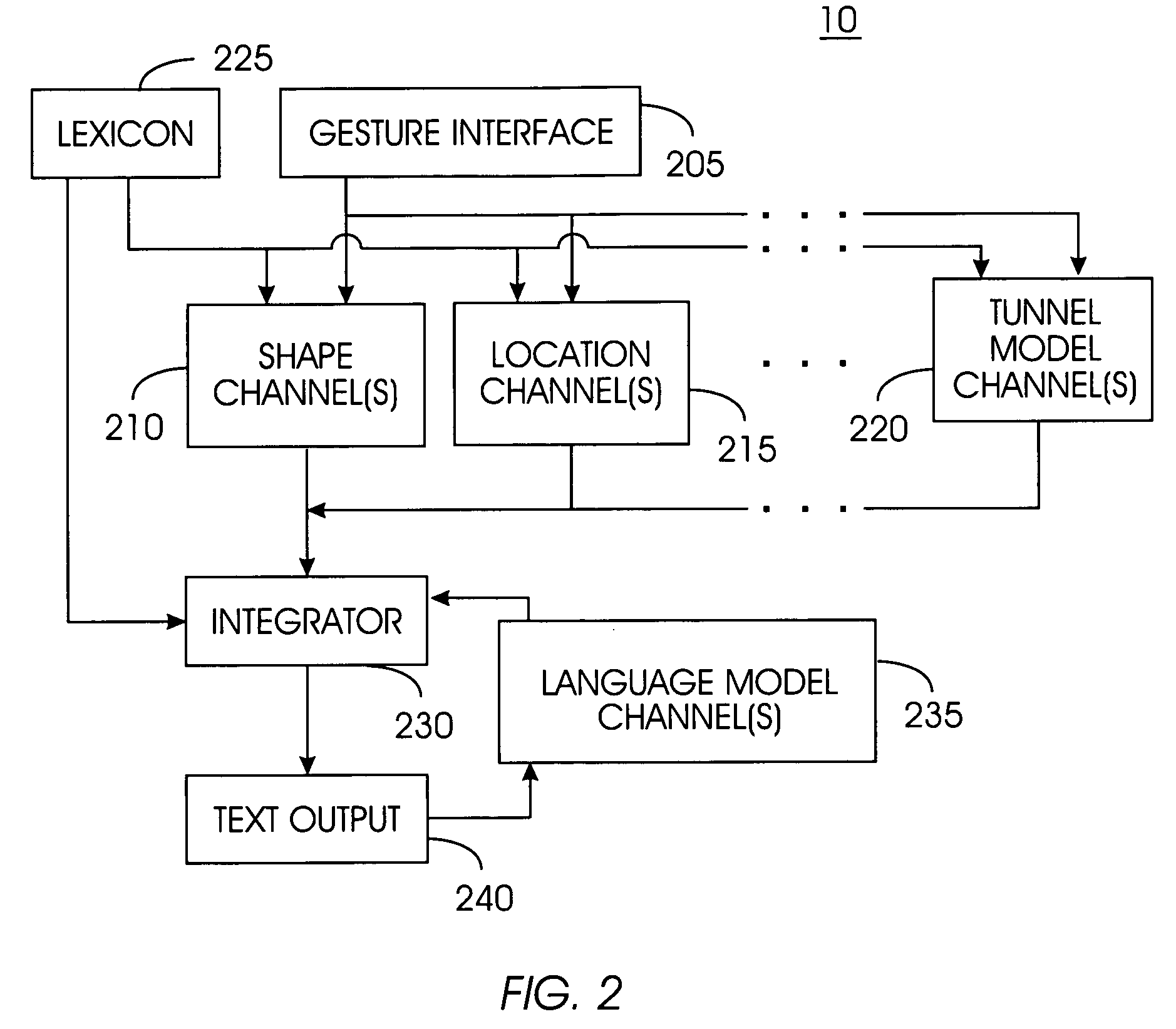System and method for recognizing word patterns in a very large vocabulary based on a virtual keyboard layout
a virtual keyboard and word pattern technology, applied in the field of text entry devices for computers, can solve the problems of limiting the ability of users to input text, the speed of text entry methods is limited, and the handwriting is too limited for writing longer text, so as to achieve the effect of less visual attention, relative ease of use, and quick input of tex
- Summary
- Abstract
- Description
- Claims
- Application Information
AI Technical Summary
Benefits of technology
Problems solved by technology
Method used
Image
Examples
Embodiment Construction
[0037]The following definitions and explanations provide background information pertaining to the technical field of the present invention, and are intended to facilitate the understanding of the present invention without limiting its scope:
[0038]ATOMIK—Alphabetically Tuned and Optimized Mobile Interface Keyboard, is a keyboard layout that is optimized by an algorithm in which the keyboard was treated as a “molecule” and each key as an “atom”. The atomic interactions among the keys drive the movement efficiency toward the maximum. Movement efficiency is defined by the summation of all movement times between every pair of keys weighted by the statistical frequency of the corresponding pair of letters. ATOMIK is also alphabetically tuned, causing a general tendency that letters from A to Z run from the upper left corner to the lower right corner of the keyboard, helping users find keys that are not yet memorized. ATOMIK is one exemplary virtual keyboard that can be used in combination...
PUM
 Login to View More
Login to View More Abstract
Description
Claims
Application Information
 Login to View More
Login to View More - R&D
- Intellectual Property
- Life Sciences
- Materials
- Tech Scout
- Unparalleled Data Quality
- Higher Quality Content
- 60% Fewer Hallucinations
Browse by: Latest US Patents, China's latest patents, Technical Efficacy Thesaurus, Application Domain, Technology Topic, Popular Technical Reports.
© 2025 PatSnap. All rights reserved.Legal|Privacy policy|Modern Slavery Act Transparency Statement|Sitemap|About US| Contact US: help@patsnap.com



